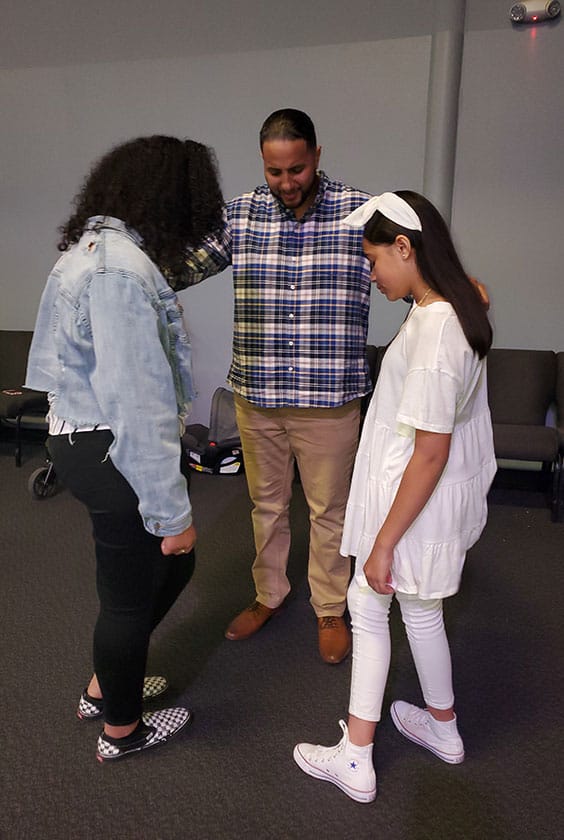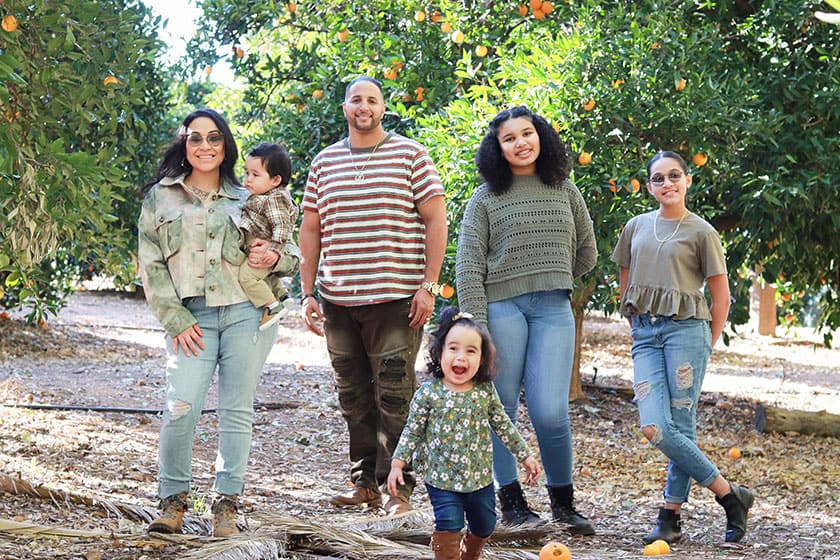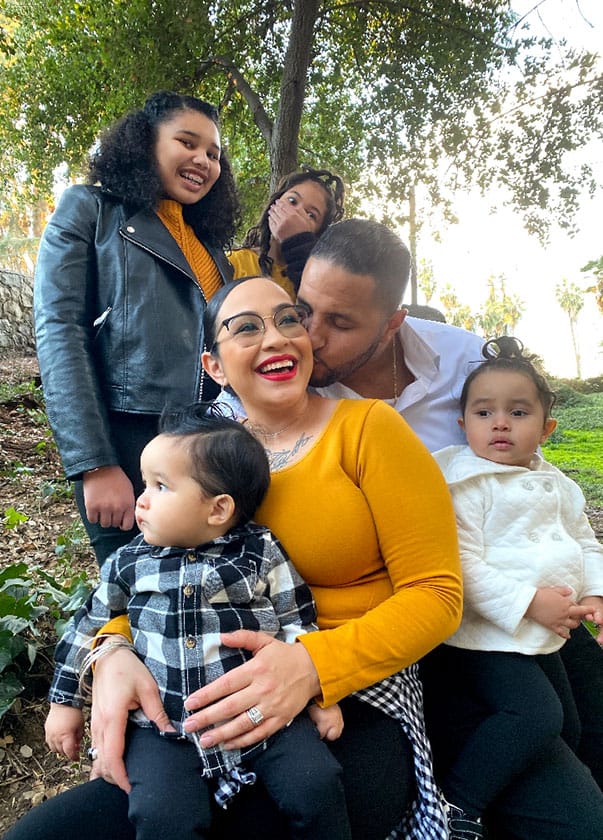-
MOVING FORWARD FROM THE PAST
Maurice was determined to break the cycle of crime in his life.
There's a mental image that has stayed with Maurice since his incarceration. It's the memory of a visit from his daughter, then only a toddler, and her mother while Maurice was in prison. He still remembers how his daughter looked up at him from the other side of a glass partition.
"Only through the little glass, I couldn't touch her. I couldn't hug her," Maurice explains. "I couldn't do any of that … I didn't have any relationship, any bonding with her."
After the visit, Maurice watched his family walk away, heartbroken by the knowledge that he couldn’t be there for his daughter like she deserved. A lot like Maurice's own dad hadn't been there for him.
Maurice had spent years cycling in and out of prison throughout young adulthood. His main influences were the gang members he ran with in Southern California. For years, Maurice's life was about drugs, women, money, and whatever else the streets had to offer.
Then in prison, Maurice heard the Gospel and decided to follow Jesus. He participated in The Urban Ministry Institute (TUMI), an in-prison seminary program facilitated by Prison Fellowship® in partnership with World Impact. The love of a caring Christian community behind bars helped him deepen his faith. And that changed everything—for him, for his family, and even for people he would meet beyond the gates.
The love of a caring Christian community behind bars helped him deepen his faith. And that changed everything.
A PAST YOU CAN'T ERASE
Maurice walked free from prison for the last time in November 2012. At the start of his parole, he moved in with his mom and stepdad and got a job at an Amazon warehouse. There, he developed a rapport with coworkers and managers who noticed Maurice's work ethic and good attitude. He was thankful to have a job so soon after being released—especially since the application process included a background check.
Before long, Maurice earned a promotion and a $1.50 raise. Then, he was offered stock in the company as an additional reward. The only catch: Maurice had to provide proof of a high school diploma or GED and take a drug test. But he agreed without a worry. He was a top-performing employee with nothing to hide.
Soon after Maurice found himself in the human resources office where a staff member had written a few jarring words on a whiteboard. And two of those words were part of Maurice's past: guns and violence.

Maurice was taken aback.
"I was like, 'guns and violence'—that's my criminal history," says Maurice. "He told me the company wouldn't tolerate these things, in this judgmental, degrading tone." And after more than seven excellent months of leading in this company, earning a promotion, and receiving a pay raise, the HR representative explained to him that due to his background, he could no longer work on the premises.
By the end of the conversation, Maurice knew he was out of a job.
'I was like, 'guns and violence'—that's my criminal history. ... He told me the company wouldn't tolerate these things, in this judgmental, degrading tone.'
LEARNING TO MOVE FORWARD
Maurice is one of millions of adults in the U.S.—a staggering 1 in 3 Americans—who has a criminal record. This limits people's access to education, jobs, housing, and other necessities for a full and productive life, even after they have paid their debt to society.
Maurice picked up odd labor jobs where he could. Soon he saw unemployment as an opportunity to go back to school. Two months after he was let go, he enrolled in community college courses at San Bernardino Valley College, where he completed his associate degree. Next, Maurice transferred to California State University, San Bernardino, and earned a bachelor's degree in sociology.
All the while, he was still living with family, trying to follow God, and staying sober—even when he couldn't control his surroundings. At times, Maurice felt alone in his challenges. At school, he took a few classes by mistake that didn't apply to his degree. At home, relatives wondered why he went to church so much and wouldn't drink with them.
But Maurice held on to what he knew was true.
"I was still a hustler, in personality, from my life on the streets," Maurice explains. "For a long time, I used that networking ability for evil. But God created me like that for good."
Soon, Maurice knew he had a next step to take in his career. He wasn't sure what that would look like. But he knew God was asking him, "Do you want to work for me, or do you want to work for the world?"

He knew God was asking him, 'Do you want to work for me, or do you want to work for the world?'
A RESTORED CITIZEN
After graduating, Maurice intended to become a social worker with the county. But God had something else in mind: an opportunity with Prison Fellowship.
Today, Maurice is a field director for Prison Fellowship in California. He builds relationships with departments of corrections, local volunteers, faith communities, and reentry partners in order to provide restorative programming for people affected by crime and incarceration. Often, his role takes him back behind bars in the same system where he once served prison time.
"I have been able to be an example of what is possible," says Maurice. "I'm representing not only myself as a father, as a husband. I'm representing myself as a restored citizen."
Maurice is making an impact with prisoners, program volunteers, probation officers, and correctional staff. And he's also showing the love of Christ to his parents and siblings who can see his transformation in real time. Often, when he's not hanging out at home with his kids and his wife Stephanie, he's volunteering at church and serving the community.
"They know I'm a man of God, and I live for God," says Maurice. "And it's not just something that I do on Sunday."
Maurice and Stephanie recently celebrated five years of marriage. They live in Southern California, and with several kids between them, it's a full house. Maurice wouldn't have it any other way. Because to him, that's what matters most—staying connected to God and to each other.

'I'm representing not only myself as a father, as a husband. I'm representing myself as a restored citizen.'